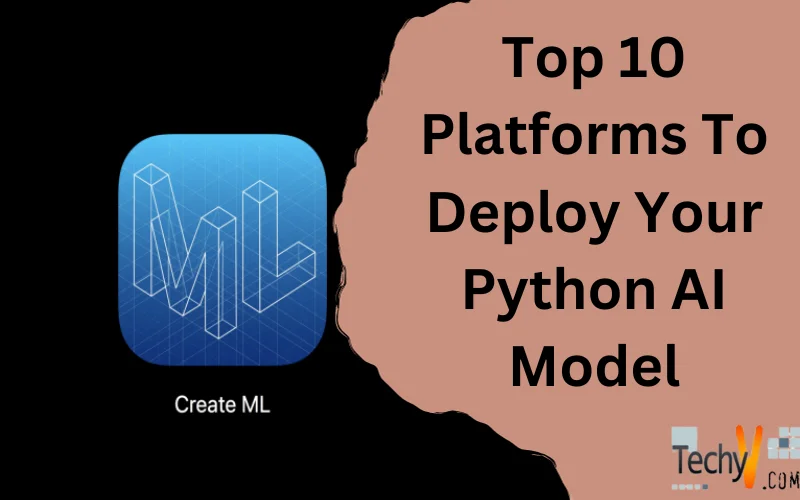Python is one of the most used programming languages in recent times and has various applications across almost every domain such as web development, cryptography, AI and ML, data science, competitive programming, etc. Use it to create any type of software or service and even train your own AI model for image detection, conversational AI, or any other AI model, but when it comes to deploying them you will need an environment that is suitable to deploy Python applications. So, in this article, you will learn about the Top 10 Platforms where you can deploy your Python AI Model or even any other type of application made using Python. The platforms listed in this article are free and paid ones make sure you check out the official site of the platform to know about pricing before signing up with them.
1. Algorithmia
We have Algorithmia first in the list and it revolves around AAAS (Algorithm as a service) architecture. It allows users to upload or create their code that runs the ML model which then can be hosted on the Algorithmia platform, which then can be accessed using API. Using this approach the model API can be used for several choices such as web development, mobile apps, or making a recommendation system for an e-commerce site, just by a simple call from the API of Algorithmia.
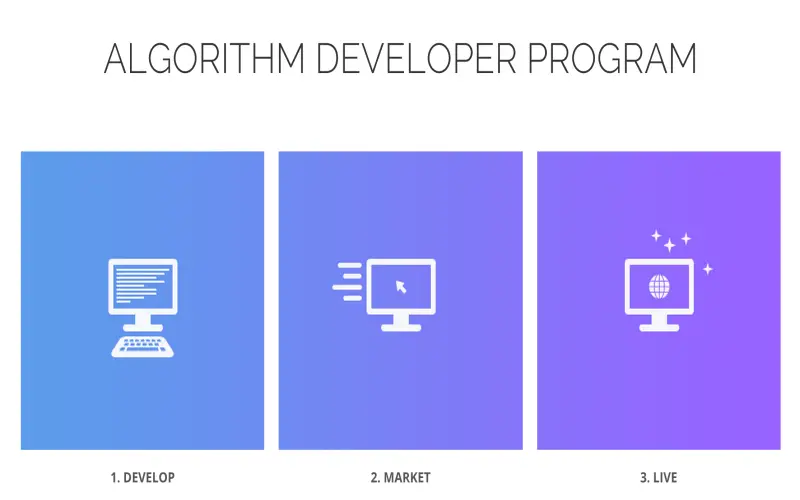
2. Python Anywhere
On number two we have Python Anywhere, which is one of the best services for deploying any type of Python application, web app, or API. It provides a straightforward approach to deploying your Python application or AI model with API. You get storage and a computer-like environment where you can deploy your application or AI API just like when you deploy it for testing in the local system. It has a file and folder-based storing system just like our local devices. But if you have any deep learning or AI model you must check for some good server, because Python Anywhere does not provide any GPU system for model training or graphic intense works. I have personally used it and is very useful. It has a bit old a style dashboard, but works well.
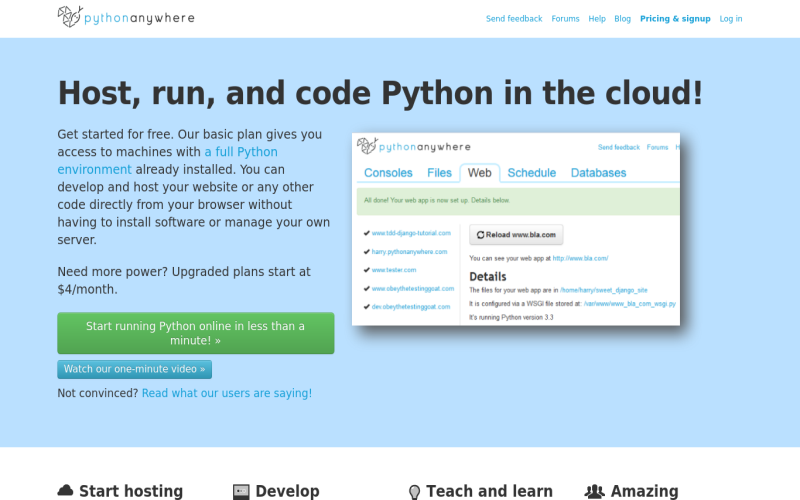
3. Google Cloud
GCP (Google Cloud Platform) is a fully scalable and manageable platform provided by Google, as the name suggests. It comes with a series of cloud computing resources such as computing, Storage, Database, Artificial Intelligence/Machine learning, networking, big data, and a lot more. These tools or services can be used to deploy your Python or other language application of any type. Google provides infrastructures such as IaaS (Infrastructure as a service), PaaS (Platform as a service), and SaaS (Software as a service).

4. Heroku
Heroku is leading this race of Python deployment but has stopped the free tier for some reason. Heroku is best for any type of Python application deployment and has fine documentation to get you started. One more thing about Heroku is that it’s available for not only deploying Python applications but also Java, PHP, Node, Go, Ruby, Scala, and Clojure applications. It comes with several tools for your deployment and is easily scalable and manageable. You can directly connect your GitHub account and deploy the repo for them. They also provide Heroku CLI which can be installed and used directly in the terminal for deployment. It is available in Windows, Linux, and Mac systems.

5. Dash
Dash is a front-end framework used to deploy your Python ML application, but can also be used to deploy some general interface Python applications. It is an open-source framework and is loaded with plenty of documentation to get you started with it. Dash Enterprise is a reliable and scalable platform for rapid app deployment and comes with authentication out of the box. It can be integrated with other IT infrastructure.

6. Azure Pipeline
Azure pipeline is a cloud service provided by Azure for automatically building, testing, and deployment of Python-based machine learning models or applications. SDK allows data scientists and AI developers to experiment and research on any Python-based environment such as Jupyter Notebook, visual studio code, or any other Python IDE. It’s scalable, optimized, configured, and automated management.
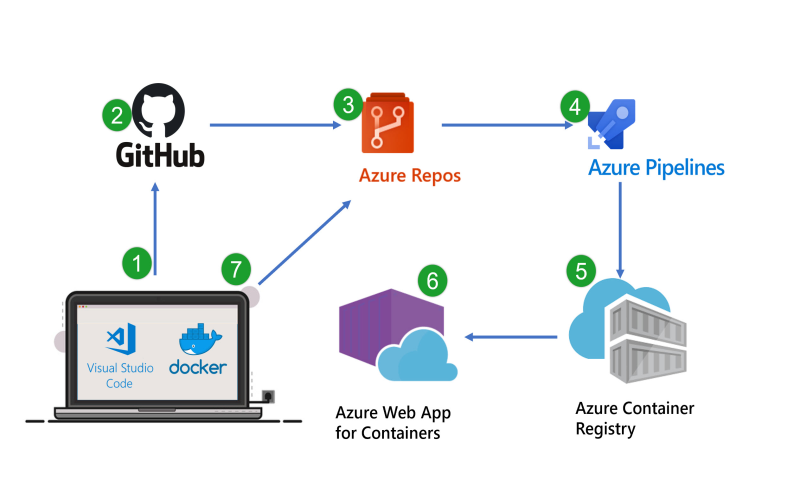
7. BigML
BigML is also a famous open-source tool that provides a direct infrastructure for Machine learning as a service for business analysts and AI application integration. It can help build machine learning and deep learning models with just a few clicks. It comes with a web interface that could be used for uploading datasets, making predictive models, and evaluating machine learning models. The tool also provides a command line interface known as Bigmler. REST API can be directly used as a wrapper around any programming language such as Python, Ruby, etc.
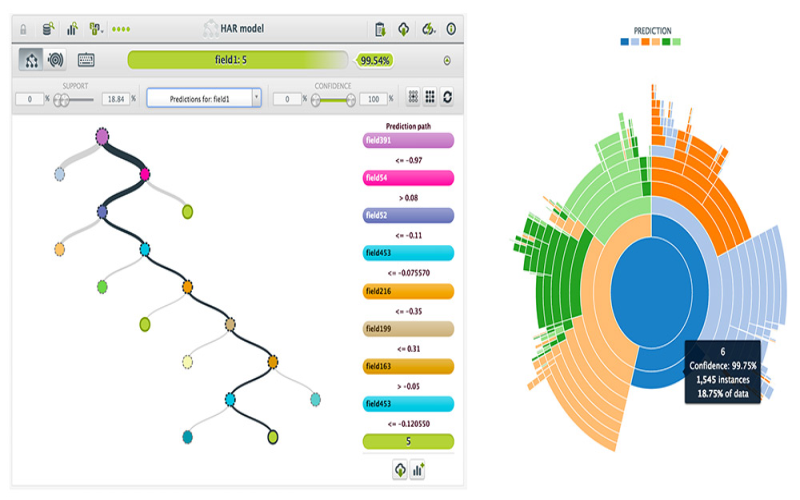
8. CreateML
Create ML is a no-code tool developed by Apple for machine learning training custom models on Mac machines. These models can be trained on custom data to process large amounts of data for tasks like recognizing objects in images, extracting meaning from text, or training some neural network system. It allows users to train multiple models on multiple datasets in a single project and pause, save, resume, and extend the training process.
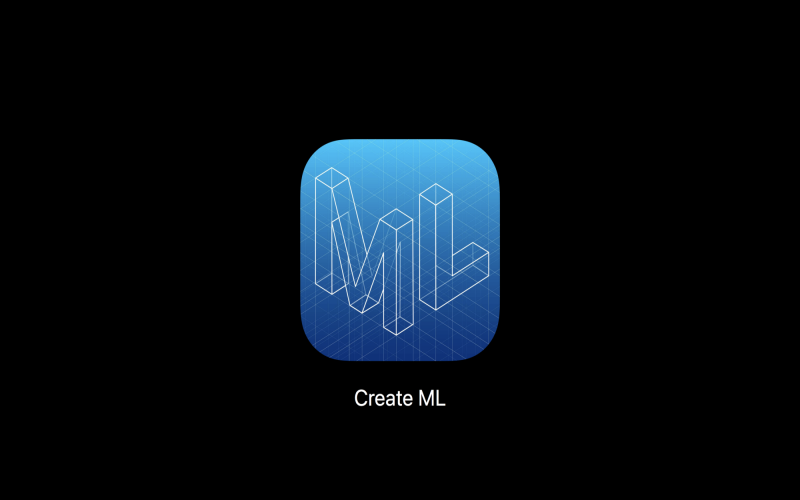
9. Data Robot
Data robot is a popular end-to-end enterprise-level platform for AI for fast and easy deployment of accurate predictive models. Data Robot helps automate all the processes of building machine learning models such as preparing, building, deploying, monitoring, and maintenance of powerful AI applications. It comes with a highly scalable infrastructure.
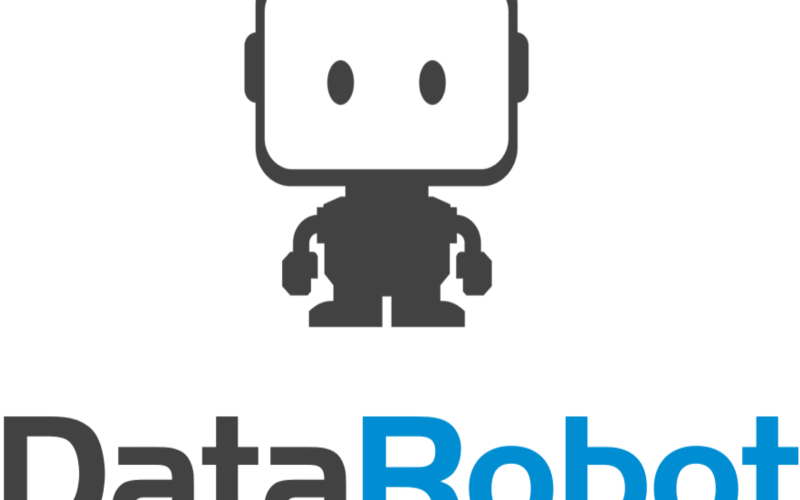
10. Fritz AI
Last but not least, Fritz AI which is also a machine learning platform available for IOS, Android, and SnapML in Lens Studio. Lens Studio is an integrated workspace where users can develop custom machine learning models at scale, or just use the pre-trained model without any restrictions in your project. Fritz AI mobile and Fritz AI for SnapML are the two most prominent features of the Fritz AI platform. Before using any of these platforms I suggest you visit the website and navigate around to understand more about the platform and pricing.




